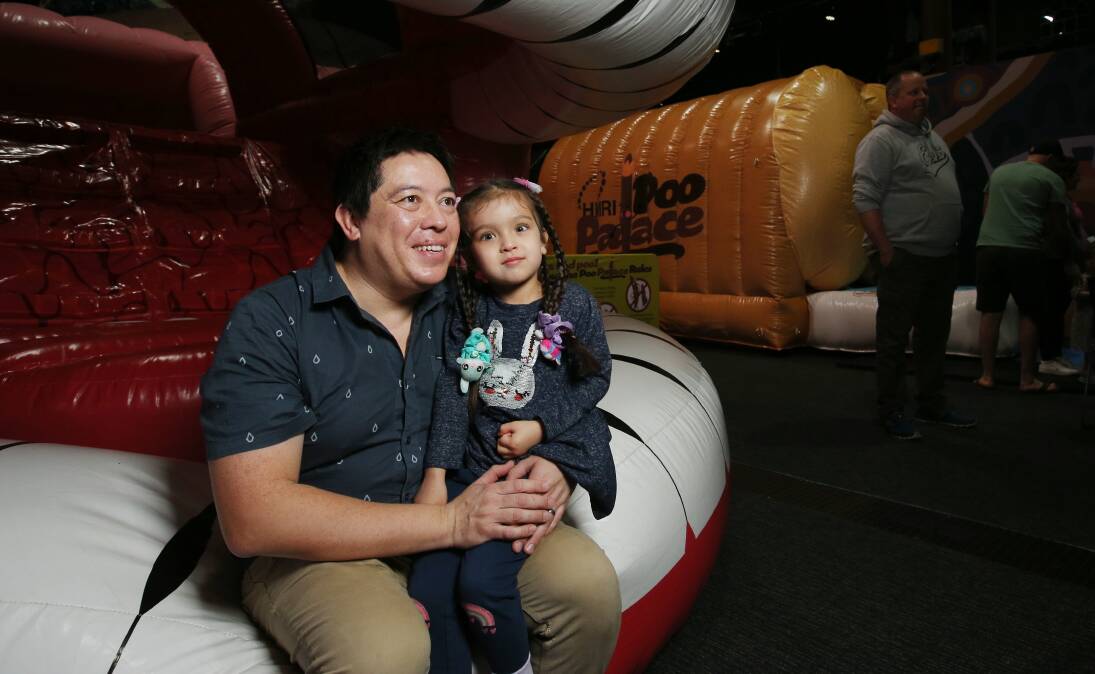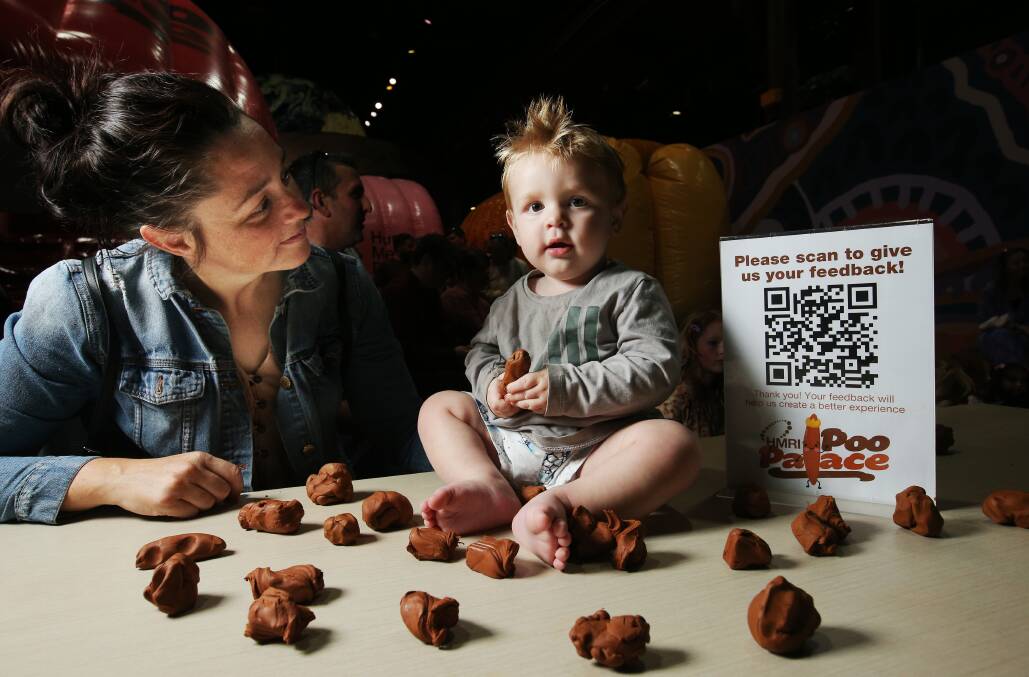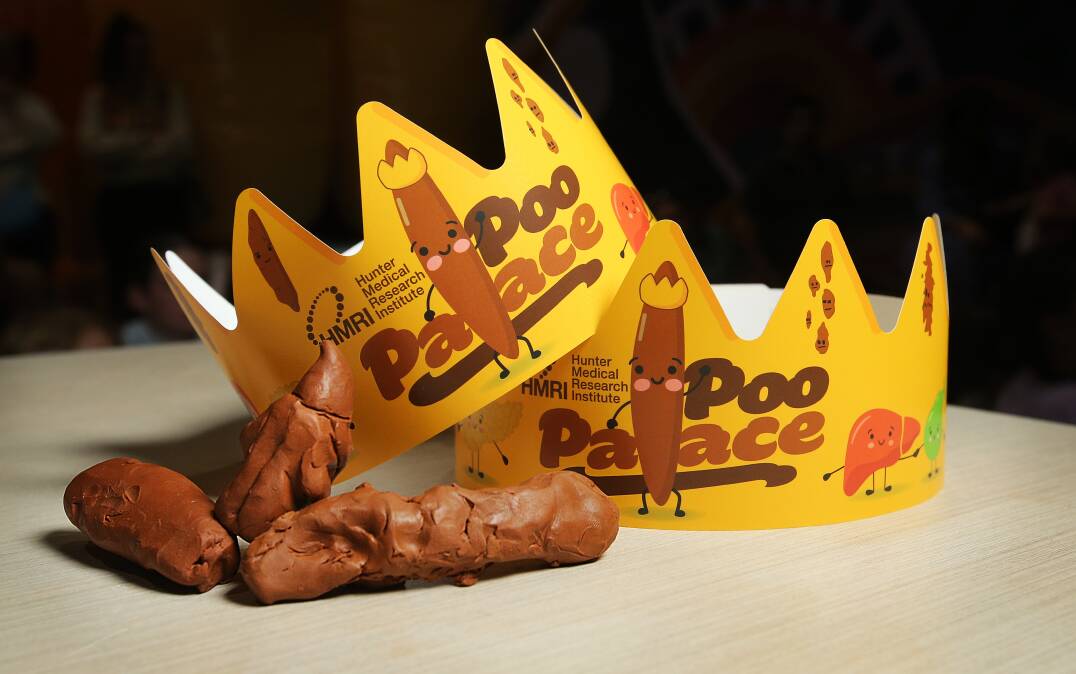
Budding scientists flocked to Newcastle Museum by the thousands on Sunday for the annual Hunter Science Festival, complete with live demonstrations and experiments.
The event marked the final day of National Science Week with solar cars and a rocket building station. The festival had more than 20 activities, aimed to attract all demographics.
"I want to see stuff explode," visitor Lucas Mclean said. "I hope oxygen."
"He loves science," Lucas' mother Em Mclean said. "[This event] is something different."
But a highlight for most? The affectionately-named 'poo palace'.
This giant inflatable digestive system was developed by Hunter Medical Research Institute (HMRI) to teach kids about, well, their poo.
Professor Simon Keely works in microbiology and immunology. He knows how important a good digestive system is: that is why he developed the palace.
"We wanted to create an exhibit that was interactive and allowed kids to learn," he said.
The sold-out exhibit allowed visitors to crawl through the mouth, into the stomach and intestines before coming out the anus.
Such an experience was not lost on participants.

"My kids have a lot of enthusiasm for it," mother Lynelle James said. "One son is six years old. Bum holes are [everything]."
Professor Keely said the palace had proved "really, really successful".
"There is lots of information about digestion, what your poo should look like and what good nutrition is all throughout the poo palace.
"Of course, kids get to have fun at the same time," he said.

Constructing the palace was a huge feat. Now on its third "public outing", it cost almost $30,000 to develop. The build was supported by grants from the NSW state government and Hunter Water.
It is an investment that deputy lord mayor Declan Clausen, who holds a postgraduate science degree, said was worth it.
"Novocastrians are really passionate about science," he said. "We've got some amazing institutions like the University of Newcastle and HMRI that have some of the world's leading minds on science. This is a great piece of outreach."
Cr Clausen the event was "crucial" for engaging the next generation.
"We want to help make sure young people and kids are as interested in science as I am because it's going to be so fundamental to the future of our city.
"We need to make sure out young people are exposed to science beyond just what's taught in the classroom. Some of the real-world applications and amazing science and innovation is led by [the Hunter]," Cr Clausen said.
Last year's festival attracted more than 4,000 people and similar numbers are estimated to have attended today.







